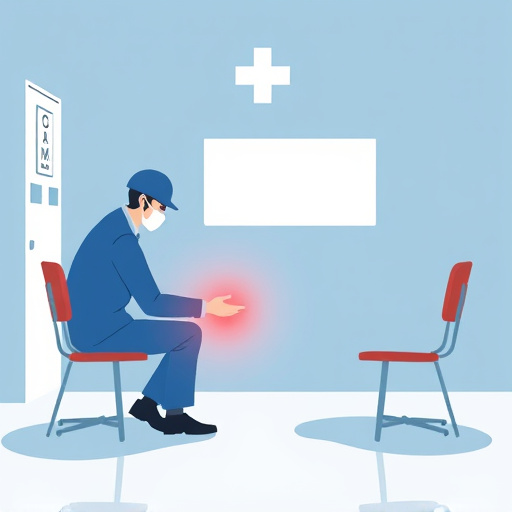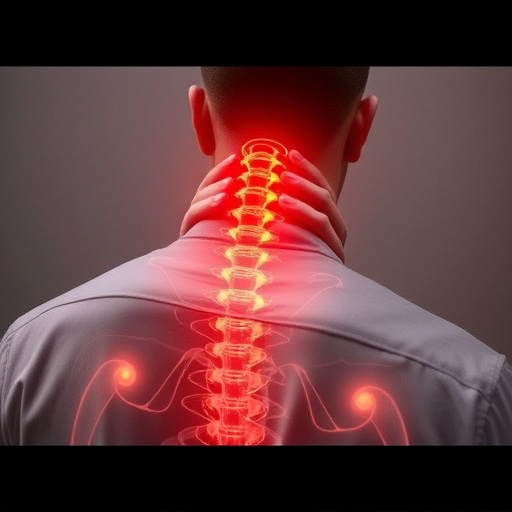Severe recurring headaches can significantly impact daily life, with potential causes including migraines, tension-type headaches, or more serious conditions like brain tumors. Workers compensation insurance provides crucial support for work-related injuries, offering access to specialized headache clinics and comprehensive treatment plans. Advanced therapies such as TMS and SCS, alongside personalized medicine and behavioral therapies, are available through these programs. Tailored therapy plans consider individual triggers, lifestyle, and medical history, incorporating ergonomic solutions for strain-related headaches. Specialized centers empower workers with holistic care, improving quality of life and return to work. Support groups and community resources further assist in long-term condition management.
Severe recurring headaches can significantly impact daily life, but specialized treatment offers hope. This comprehensive guide explores causes, diagnosis, and advanced therapies for relentless migraines and headaches. We delve into the role of workers’ compensation in funding tailored care, emphasizing its importance in managing work-related injuries. Personalized therapy plans combine conventional and holistic approaches, while success stories highlight the transformative power of targeted treatment. Learn how to navigate this journey towards wellness with available support and resources.
- Understanding Severe Recurring Headaches: Causes and Diagnosis
- The Role of Workers Compensation in Funding Specialized Care
- Advanced Treatment Options for Unrelenting Migraines and Headaches
- Personalized Therapy Plans: A Holistic Approach to Relief
- Success Stories: Transforming Lives Through Targeted Care
- Navigating the Journey: Support and Resources for Continued Wellness
Understanding Severe Recurring Headaches: Causes and Diagnosis

Severe recurring headaches can significantly impact an individual’s quality of life, often leading to prolonged periods of discomfort and disability. Understanding the causes and diagnosis of these headaches is crucial for effective treatment. In many cases, they may arise from underlying conditions such as migraines, tension-type headaches, or even more serious issues like brain tumors or infections. Work-related injuries, including those covered by workers compensation care, can also contribute to the onset or exacerbation of recurring headaches.
Diagnosis involves a comprehensive medical history review and physical examination. Healthcare providers may utilize specialized tests such as imaging scans (MRI, CT) to rule out structural abnormalities or neurological conditions. Identifying triggers, such as specific foods, stress factors, or environmental stimuli, is essential in managing these headaches effectively. Workers compensation injury care often includes access to specialized headache clinics that offer comprehensive assessments and tailored treatment plans.
The Role of Workers Compensation in Funding Specialized Care

Many individuals suffering from severe recurring headaches, especially those stemming from work-related injuries, find solace in specialized treatment options. Workers compensation plays a pivotal role in funding this specialized care for injured workers. This system is designed to provide financial support and medical benefits to employees who have sustained injuries or developed illnesses on the job.
When an individual experiences chronic head pain due to a work-related incident, workers compensation insurance can cover the cost of advanced treatments like physical therapy, specialized medications, and even psychological counseling. Accessing these resources ensures that victims receive comprehensive care tailored to their unique needs. This not only alleviates their suffering but also promotes a faster recovery and enhances their overall quality of life.
Advanced Treatment Options for Unrelenting Migraines and Headaches

In cases of severe, recurring headaches or migraines that persist despite conventional treatments, advanced options are available through specialized clinics and worker’s compensation injury care programs. These cutting-edge approaches aim to provide lasting relief for individuals struggling with chronic pain. One such method involves neurostimulation techniques, such as transcranial magnetic stimulation (TMS) and spinal cord stimulation (SCS), which have shown promise in reducing migraine frequency and intensity.
Additionally, targeted drug therapies and personalized treatment plans are tailored to individual needs. This may include the use of specialized medications not typically prescribed for general headache relief. Specialized clinics also offer behavioral therapies, such as cognitive-behavioral therapy (CBT) and biofeedback, which teach individuals coping mechanisms to manage pain. These advanced treatments can be especially beneficial for workers compensation injury care, ensuring that affected individuals receive comprehensive support for their debilitating headaches.
Personalized Therapy Plans: A Holistic Approach to Relief

Personalized therapy plans are a key component in effectively managing severe recurring headaches, especially for those seeking workers’ compensation injury care. Unlike one-size-fits-all solutions, this holistic approach tailors treatments to individual needs and triggers. By thoroughly assessing each patient’s unique situation, including their medical history, lifestyle factors, and specific headache patterns, healthcare providers can design comprehensive strategies.
These plans often incorporate a combination of interventions such as medication, relaxation techniques, physical therapy, and lifestyle modifications. For instance, workers’ compensation patients might benefit from specialized programs focusing on ergonomic improvements at the workplace to prevent strain-related headaches. Additionally, cognitive-behavioral therapy (CBT) can empower individuals with coping mechanisms to manage stress and pain effectively.
Success Stories: Transforming Lives Through Targeted Care

Many individuals suffering from severe recurring headaches find hope and relief through specialized treatment centers, often after navigating a labyrinthine path to diagnosis. These centers offer targeted care tailored to each patient’s unique condition, focusing on more than just symptom management. Success stories abound, with workers compensation injury cases being one notable example. Employees who have suffered head injuries on the job often experience chronic pain and debilitating symptoms that impact their quality of life. Specialized treatment programs designed to address these issues have shown remarkable results in helping workers reclaim their lives.
Through a combination of advanced medical care, therapeutic interventions, and support services, these centers transform lives previously marked by persistent headaches. Patients learn coping mechanisms, gain access to cutting-edge treatments, and receive emotional support tailored to their specific needs. The impact extends beyond individual recovery; it empowers workers to return to their careers, contributing once again to their communities with renewed vitality and resilience.
Navigating the Journey: Support and Resources for Continued Wellness

Navigating the journey towards managing severe recurring headaches can be challenging, especially for those who have experienced a worker’s compensation injury. The road to wellness involves a combination of medical care and personal support. Many individuals find it beneficial to seek specialized treatment centers that offer comprehensive services tailored to their unique needs. These centers often provide a multidisciplinary approach, combining the expertise of neurologists, psychologists, and physical therapists to address the physical and emotional aspects of chronic headache disorders.
Support groups and community resources play a vital role in fostering continued wellness. Sharing experiences with others facing similar challenges can be empowering and encouraging. Worker’s compensation insurance programs often include access to these support networks, ensuring individuals receive not only medical care but also the emotional guidance needed to manage their condition effectively over the long term.














